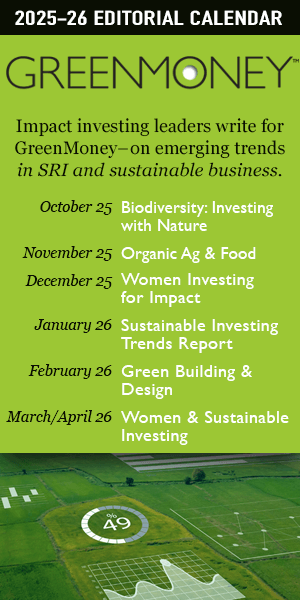Above photo: Nepal Panauti Community
 Tourism can be more than just traveling for entertainment and Bruce Poon Tip had a clear vision from the very beginning. He envisioned using tourism to do good things around the world and that is how the Planeterra Foundation came into being. Today, two decades later, his vision has become a reality and it is transforming the way the tourism industry traditionally works, embracing local communities rather than excluding them from tourism and making travel experiences more meaningful and impactful in the process.
Tourism can be more than just traveling for entertainment and Bruce Poon Tip had a clear vision from the very beginning. He envisioned using tourism to do good things around the world and that is how the Planeterra Foundation came into being. Today, two decades later, his vision has become a reality and it is transforming the way the tourism industry traditionally works, embracing local communities rather than excluding them from tourism and making travel experiences more meaningful and impactful in the process.
Planeterra is the world’s leading nonprofit using tourism to uplift communities around the world. Born in Toronto, Canada, but rooted everywhere, Planeterra works with community tourism enterprises that are led by women, youth, Indigenous peoples, and rural communities, to break down the barriers that prevent them from leveraging the ripple effects of tourism.
Why Community Tourism?
When Planeterra first started back in 2003, they engaged in traditional philanthropic activities, focusing on a specific issue and raising funds through travelers to support various causes. However, over the years, they realized that while this approach was helping people in need, they could create a long-lasting impact by working with, and through, the tourism sector itself.
But Why Focus on Community Tourism?
Tourism is an estimated US$8 trillion industry, but the truth is that only a small fraction, if any, of that money reaches small businesses and local communities. This is one of tourism’s main problems, as it leads to a lack of opportunities for communities to be successful and have control over their own growth, development, and futures. Community tourism proposes a responsible tourism model that can break that cycle.
Planeterra defines community tourism as travel experiences owned, led, and run by communities – non-profits, cooperatives, community organizations, and social enterprises. At its very best, it bridges the gap to engage underserved communities in meaningful, life-changing ways. Despite its immense potential, community tourism is neither widespread nor prioritized by mainstream tour companies, but Planeterra is working to change that.
Years in the field have shown the team at Planeterra that community tourism is an opportunity to embrace a more responsible way to travel by encouraging genuine encounters between local communities and travelers while ensuring that local people are benefiting from tourism.
Furthermore, community tourism can be instrumental in celebrating cultural diversity, learning about different realities, protecting the environment and its resources and most importantly, empowering people by giving them a voice.
Planeterra\’s Game-changing Approach to Tourism: Creating Meaningful and Lasting Positive Impacts
Planeterra’s efforts focus on empowering women, youth, rural and indigenous communities, migrants/refugees, and differently-abled individuals, while also prioritizing environmental conservation, mainly by:
- Establishing long-lasting partnerships with social enterprises, cooperatives, community representatives and/or NGOs that have big social, environmental and economic goals.
- Creating job opportunities that allow local people to showcase their culture and share their history and unique stories with travelers their way while sustainably earning income.
- Providing communities with resources, such as start-up grants, coaching or learning opportunities to enable them to establish and manage successful tourism businesses.
To guarantee the economic sustainability of community-owned enterprises, Planeterra partners with travel companies and works with them to integrate community tourism experiences into their itineraries. It is their market-driven, traveler-centric model that sets them apart and they have already supported over 100 community tourism enterprises worldwide through training, mentoring, start-up grants, and connecting them with the travel industry through its corporate partners. This not only ensures that money stays in the hands of local people but also allows travel companies to offer meaningful experiences to customers.
The Ripple Effects
When Planeterra talks about the positive impact of community tourism, they often refer to the ripple effects, but what does that mean? Here are a few examples:

Communities Earning a Sustainable Income through Cultural Celebration Resulting in Children Getting Increased Access to Education: Ccaccaccollo Women’s Weaving Co-op
Nestled in the heart of the Peruvian Andes, only 25 kilometers away from Cusco, is the Ccaccaccollo community. Despite its proximity to a well-known tourist destination, Machu Picchu, the community did not see any benefit from the income of tourism. On the contrary, they were frequently excluded from educational and economic opportunities. As a result, many had to leave the community and their indigenous traditions were at risk of disappearing.
But in 2005, Planeterra worked with five women in the community to establish the Ccaccaccollo Women’s Weaving Co-op, and funded training programs to bring back lost weaving traditions due to the lack of significant income opportunities. Nowadays, the women of Ccaccaccollo produce beautiful textiles and crafts made out of llama and alpaca wool that showcase the culture of the Cusco region. Travelers visiting them can learn about their traditional weaving techniques and even purchase handmade textiles directly from the weavers themselves.
The Ccaccaccollo Women’s Weaving Co-op is Planeterra’s flagship project, not only because it is the first community tourism initiative they supported, but also because this partnership showcases the long-lasting positive impact that responsible tourism has on local communities. Aside from contributing to their families’ income, the women of Ccaccaccollo report that all of their children study at university. Also, those involved in the cooperative are the first generation to be completely literate in Spanish.

Women Taking on Leadership Roles in their Communities: Lusumpuko Women’s Club
Lusumpuko means progress in Tonga (the local language), the perfect name for this inspiring group of women from Victoria Falls, Zimbabwe. The Lusumpuko Women’s Club started off as a chicken-rearing co-operative and provided catering services for local churches and events. This was their way to create additional income for their households and to inspire others to do the same.
Planeterra began supporting the cooperative in 2018 as the desire to work in tourism was there, but there was a need for training in business and hospitality. The Lusumpuko ladies (as they refer to themselves) also received a grant to help kick-start their meal service for travelers. With this initial investment, they were able to purchase much-needed catering equipment, such as pots and serving utensils. Moreover, Planeterra helped them secure a steady source of income from tourism through its travel company partners.
Besides serving a delicious Zimbabwean meal, the women at Lusumpuko are lively and joyful, always thrilled to host visitors and take them through the process of preparing their traditional dishes. The Lusumpuko Women’s Club is a great example of how community tourism can facilitate meaningful interactions between local people and travelers, provide a source of income and empower women to take on leadership roles in their communities.

Youth Gaining Skills to Help Them Find Long-term Employment: Oodles of Noodles
An estimated 20,000 children are living on the streets of Vietnam. This is a heartbreaking reality that is only made worse by the growing divide between the rich and poor, the urban and rural populations, and ethnic minorities and majorities. What\’s even more concerning is that there\’s a lack of strong and effective child protection systems, professional social workers, and adequate programming and services for these vulnerable children.
This complex issue calls for groundbreaking solutions and that is precisely what Planeterra’s partner, STREETS International, an organization with a mission to uplift youth from poverty by creating opportunities in the catering and hospitality industries, provides. STREETS International offers at-risk youth comprehensive training in restaurant operations and management.
Alongside Planeterra, they developed an exclusive Oodles of Noodles Tour in Hoi An, which acts as a curriculum module for the students to enhance their English language and presentation skills — two crucial qualities anyone working in the hospitality industry needs. The students lead a fun and interactive noodle-making class with travelers and teach them about the twenty-six different types of noodles available in Hoi An.
The youth that have been part of Oodles of Noodles and other STREET International programs have gone on to work at top five-star hotels in Da Nang and neighboring cities as well as restaurants as far away as the Maldives.

Communities Promoting a Sustainable Environment for Generations to Come: Mi Cafecito
Costa Rica is known for its stunning natural beauty and its commitment to sustainability, with many eco-lodges and organic farms throughout the country, some of them located in the area of Sarapiqui, about 3 hours west of San Jose.
Despite the great demand for coffee, local farmers often receive small pay and they need to rely on other sources of income. Planeterra’s partner, the CoopeSarapiqui coffee cooperative, works with small family farms and, amongst other initiatives, developed the Mi Cafecito coffee tour to invite travelers to discover the wonders of this delicious beverage while supporting the local community.
Unfortunately, given that Sarapiqui is not on the typical tourist route of international travelers, Mi Cafecito was struggling to find a solid customer base and they barely managed to break even. This changed when Planeterra supported the development of the Mi Cafecito program, which includes a coffee tour and a meal experience at their on-site restaurant, and other related tourism services in the area.
Hosting travelers has been an opportunity to make their business sustainable and create new job opportunities for local people. It has also given CoopeSarapiqui the chance to invest in conserving the land that provides organic coffee, amongst other local root vegetables and cacao, obtaining several certifications for its commitment to using organic fertilizers, supporting farmers, and fostering entrepreneurship.
Uplifting Communities Through Tourism
In 2021, Planeterra publicly launched the Global Community Tourism Network to share what they have learned about community tourism throughout their journey with a broader audience. The idea is to provide community-owned enterprises, NGOs, social enterprises, cooperatives and/or small micro-enterprises with the tools they need to thrive in the tourism industry. This includes learning resources through their Learning Hub, peer-to-peer networking and funding opportunities, mostly through Planeterra\’s Global Community Tourism Fund.
To date, Planeterra has worked with over 454 communities in 77 countries, impacting the lives of hundreds of thousands of people worldwide. Looking to the future, Planeterra will continue working with stakeholders across the tourism industry to raise awareness about community tourism and also to achieve the following ambitious goals by 2030:
- 50 million travelers experiencing community tourism.
- A cumulative $1 billion worth of income reaching communities.
- 3.5 million lives improved.
Note to Reader: Travel companies interested in partnering with Planeterra or supporting the Global Community Tourism Fund can reach out to info@planeterra.org
Article by Selene Orellana, Global Coordinator at Planeterra. Selene strongly believes in tourism’s potential to create a better world. With more than nine years of experience in the sector, she has had the opportunity to explore the dynamics of tourism through the lenses of a worker, a student and a traveller both in her native Ecuador and overseas. She holds a bachelor’s degree in Tourism and Hospitality Management and a Master’s in Sustainable Tourism Destinations and Tourism Planning and focuses her research on finding alternatives to use tourism as a force for good. As a Global Coordinator, she supports all aspects of Planeterra’s communications and global programs, working across various fields with diverse stakeholders.

















